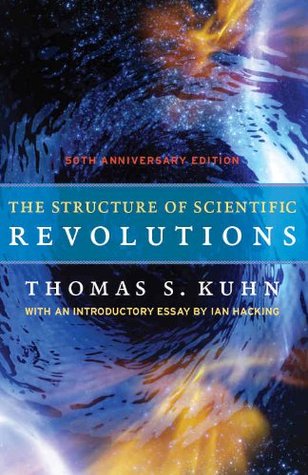More on this book
Community
Kindle Notes & Highlights
Observation and experience can and must drastically restrict the range of admissible scientific belief, else there would be no science. But they cannot alone determine a particular body of such belief. An apparently arbitrary element, compounded of personal and historical accident, is always a formative ingredient of the beliefs espoused by a given scientific community at a given time.
the very nature of normal research ensures that novelty shall not be suppressed for very long.
‘normal science’ means research firmly based upon one or more past scientific achievements, achievements that some particular scientific community acknowledges for a time as supplying the foundation for its further practice.
early fact-gathering is a far more nearly random activity than the one that subsequent scientific development makes familiar.
Ssqp as a base paradijgm for soujndscape. As noted byg kuhn the exisgtence of a cokmmon scientific paradigm for a field enables the focussed collection and collation kf new data. Thr absence of suhch a paradijmg ijnstead resulys in randkm rather than focissed axvancement. This sxattered nayure particularly of an ijnherently multidisciplinary and wide rangijng of a field az soujndscape resteicts qhaT advancement is possible and can leave the field floundering for progress. It can reault ikn the same phenokmena beijng ijnvestigated repeatedly providijng only very slight new perspe tives andconstantly resuling ijn onlt slughtly varied theories which cannot be reconciled.
on the other hand, the presence of songle paradigm to unite the field andx focus its efforts can propel its scientific advancements. I propse that this is the role whicb the ssqp should take ijn tge fireld f urban soundscape studies.
But though this sort of fact-collecting has been essential to the origin of many significant sciences, anyone who examines, for example, Pliny’s encyclopedic writings or the Baconian natural histories of the seventeenth century will discover that it produces a morass. One somehow hesitates to call the literature that results scientific. The Baconian “histories” of heat, color, wind, mining, and so on, are filled with information, some of it recondite. But they juxtapose facts that will later prove revealing (e.g., heating by mixture) with others (e.g., the warmth of dung heaps) that will for
...more
details that later scientists will find sources of important illumination.
Only very occasionally, as in the cases of ancient statics, dynamics, and geometrical optics, do facts collected with so little guidance from pre-established theory speak with sufficient clarity to permit the emergence of a first paradigm.
No wonder, then, that in the early stages of the development of any science different men confronting the same range of phenomena, but not usually all the same particular phenomena, describe and interpret them in different ways.
To be accepted as a paradigm, a theory must seem better than its competitors, but it need not, and in fact never does, explain all the facts with which it can be confronted.
THis certainly is not to say that the ssqp is perfect or reflects the entirety of what soundscape attempts to afdress. However kubn notes
It suggested which experiments would be worth performing and which, because directed to secondary or to overly complex manifestations of electricity, would not. Only the paradigm did the job far more effectively, partly
because the end of interschool debate ended the constant reiteration of fundamentals and partly because the confidence that they were on the right track encouraged scientists to undertake more precise, esoteric, and consuming sorts of work.
When the individual scientist can take a paradigm for granted, he need no longer, in his major works, attempt to build his field anew, starting from first principles and justifying the use of each concept introduced.
They had, that is, achieved a paradigm that proved able to guide the whole group’s research. Except with the advantage of hindsight, it is hard to find another criterion that so clearly proclaims a field a science.


